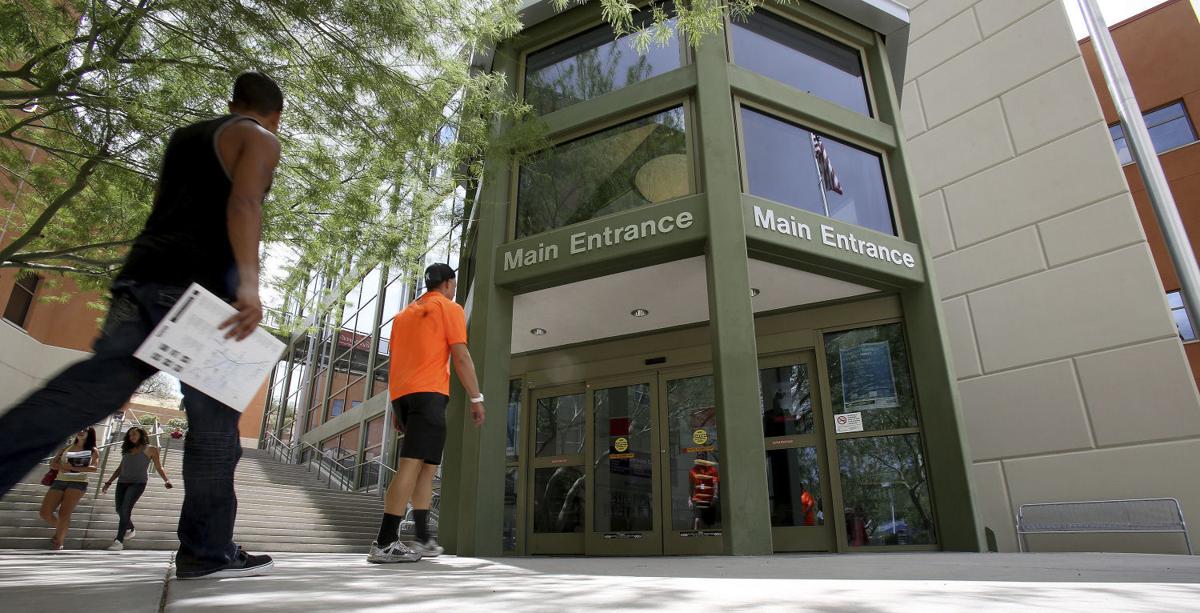PHOENIX — The Arizona Court of Appeals got it wrong in concluding “dreamers” are not entitled to in-state tuition, the lawyer for Pima Community College contends.
In a new legal filing, PCC attorney Eileen GilBride told the Arizona Supreme Court that the only thing required under both Arizona and federal law is that students be “lawfully present” in the country to qualify for the lower tuition.
She said state statutes spell out that an “Employer Authorization Document” issued by federal immigration officials is sufficient to prove “lawful presence.” And GilBride said that’s precisely the document given to those who qualify for the Deferred Action for Childhood Arrivals program, known as dreamers.
The filing comes as PCC has joined with the Maricopa County Community College District in a bid to overturn a ruling earlier this year by the appellate court that DACA recipients are ineligible for education at the same rate charged to other Arizona residents.
What the high court decides will affect the policies of community colleges statewide. The justices have not set a date to review the case.
At the heart of the dispute is Proposition 300, a 2006 voter-approved law that says in-state tuition is reserved only for those with “lawful immigration status.”
Six years later, the Obama administration created the DACA program. It allows those who were brought here illegally as children and meet other conditions to remain without fear of deportation.
Because those in the program got the employment documents, the Maricopa colleges decided that DACA recipients were qualified for in-state status. PCC followed suit effective with the fall semester of 2013.
That year, Tom Horne, then the attorney general, filed a lawsuit charging the Maricopa colleges with violating the law.
Two years later, Maricopa County Superior Court Judge Arthur Anderson, noting the employment documents, ruled in favor of the colleges.
Following that ruling, some other schools as well as the state Board of Regents voted to implement similar policies. But Attorney General Mark Brnovich, who succeeded Horne, pursued the matter.
The result was a unanimous ruling earlier this year by the Court of Appeals overturning Anderson’s findings.
Judge Kenton Jones said the 2006 ballot measure reserves in-state tuition only for those with “lawful immigration status.” And he said the decisions by the Obama administration to let DACA recipients remain — and even to work — “do not translate into the recipients’ eligibility for in-state tuition or other state or local public benefits.”
The Maricopa colleges are seeking Supreme Court review.
GilBride told the justices that PCC and its students have an interest in the outcome of the case.
Residents pay $81.50 per credit hour up to a maximum of $1,222, But those who do not qualify as residents pay $303 a credit hour, with a cap of $4,545.
She estimated there are approximately 6,000 people who are eligible for DACA living in Pima County, though the actual number who qualified is less.
“In PCC’s opinion, this is a significant source of unrealized potential talent,” GilBride wrote. Even at current tuition, there are just 171 DACA students in the system.
“Interpreting the relevant statutes to prohibit DACA students from paying in-state tuition will mean that the number of those students attending college will certainly not grow,” she told the justices. “Indeed, for most if not all of them, college will become utterly unattainable.”
GilBride is not just relying on claims of hardship in her arguments. She also contends the appellate court is misinterpreting the law.
She concedes that the statute approved by voters in 2006 does say someone needs “lawful immigration status” to qualify for in-state tuition, and that Congress has not provided such status for DACA recipients.
But she also said the statutory restriction has to be interpreted “in accordance with the (federal) Illegal Immigration Reform and Responsibility Act of 1996.” GilBride contends that law “dictates that lawful presence controls eligibility,” not immigration status.
And if the issue is “lawful presence,” that leads back to the other Arizona law saying those with the employment documents are considered lawfully present.
But Jones, in writing for the appellate court, said he and his colleagues read the 2006 law to require that students have “legal status” to get in-state tuition, meaning something approved by Congress. He said that does not include DACA recipients.
“They are more aptly described as beneficiaries of an executive branch policy designed to forego deportation of those who lacked unlawful intent in entering the country and have, since their arrival, led productive lives,” he said. But, absent some congressional action giving them legal status, Jones said they are ineligible for in-state tuition.
GilBride has one other theory in her bid to show that DACA recipients who meet other standards are eligible for in-state tuition.
She notes that another law at issue says those without lawful immigration status are not entitled tuition assistance “subsidized or paid in whole or part with state monies.” But GilBride points out that the Legislature no longer provides any state aid to Pima College.





